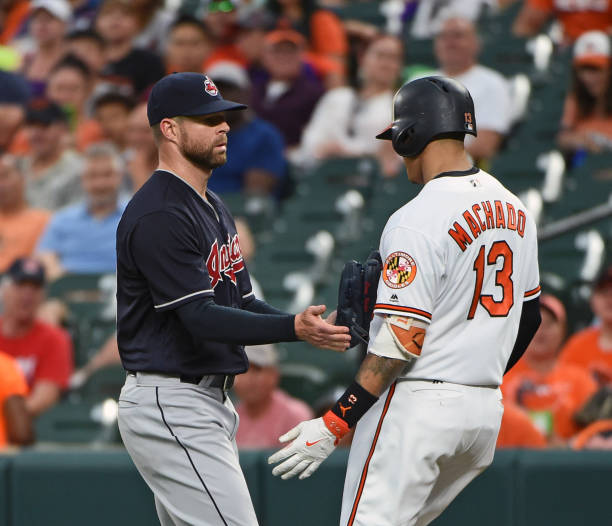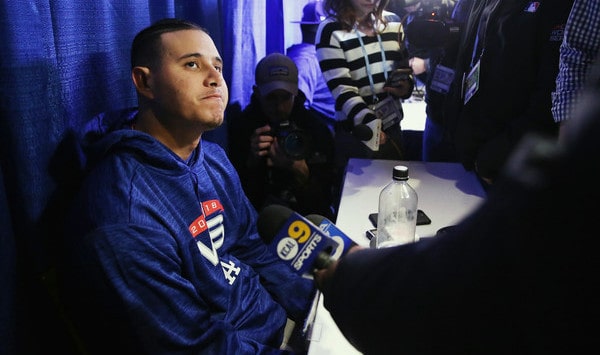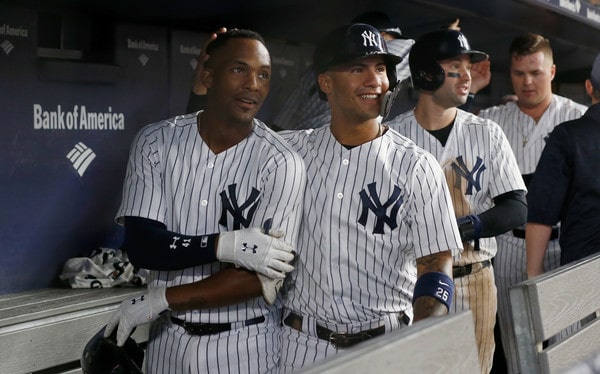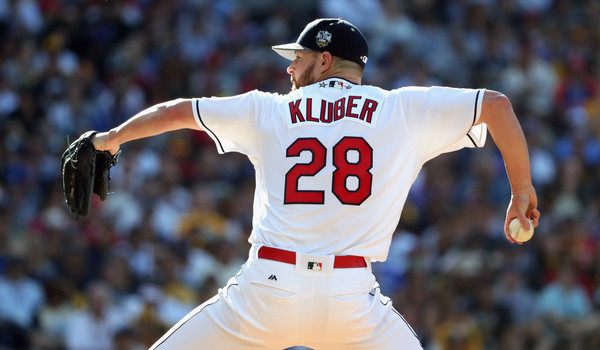
The Yankees signed DJ LeMahieu to a two-year, $24 million contract yesterday, all but guaranteeing that the team’s half-hearted pursuit of Manny Machado has come to an end. That realization prompted a fierce reaction among many Yankee fans on social media yesterday, a great deal of whom not only wanted to see the 26-year-old superstar don the pinstripes but had expected it since Machado was a teenager in Baltimore. The Machado connection is part of what makes analyzing the LeMahieu signing a more difficult exercise than usual, but it goes even deeper than that: it is a symbol of a changing relationship between the New York Yankees and its fanbase.
That is a difficult space in which to operate from an analytical standpoint. Consider, for instance, the baseball element alone: LeMahieu is an outstanding defender. Publicly-available advanced metrics consider LeMahieu worth several wins defensively and non-statistical methods agree with this assessment: he is a three-time Gold Glove-winning second basemen. That is no small reason to cheer the signing; the Yankees have many defensive question marks in their infield and LeMahieu will almost certainly be a defensive upgrade even if he moves off of second base with New York.
Offensively, he is but two seasons removed from winning the National League batting crown with a .348 batting average and even though that season was the only one in his career in which he has been a better than average hitter, there is ample evidence that he hits the ball hard and to the opposite field. Back in July, fans scoffed at the addition of Luke Voit, but the Yankees trusted that similar underlying metrics revealed a hitter who could thrive in New York, and they were right. The Yankees are a smart, well-run operation with access to proprietary data and statistics that external analysts simply don’t—and their track record is deserving of the benefit of the doubt. It wouldn’t shock me at all to see LeMahieu have unexpected offensive success.
Factor in that LeMahieu is a 2-3 bWAR player and a hidden star of Baseball Prospectus’ new metric and it becomes clear that his $12 million annual salary is a perfectly normal deal for a perfectly normal free agent. Average to slightly-above-average major league players have real (often forgotten) value, and LeMahieu fits that bill. He’ll even be replacing the non-vital role of Neil Walker and Ronald Torreyes.
In other words, it is easy to see how LeMahieu will fit on the team. Why, then, was the reaction so fierce?
That was mostly because his signing comes amid a turbulent offseason for the Yankees and their fans. You need no reminder that the Yankees and the long-coveted 2018 free agent class have a special relationship. Insert your preferred Star Wars analogy here: fully-operational Death Star, Evil Empire, etc. There were special free agents available, and the Yankees were expected to have a special offseason. LeMahieu, more even than the decision to pass on Patrick Corbin or the many nebulous comments offered by Brian Cashman, is the symbol that this expectation, so long held, won’t come to pass.
Never mind that when the Yankees sold important pieces in 2016, it was to build a young core that could be supplemented by one of the stars pending free agency. Never mind that that young core blossomed faster than anyone could have reasonably expected and became a fearsome core of extremely talented, young and (unfortunately, most importantly) team- and cost-controlled stars. Never mind that the Yankees cut $50 million in payroll after missing the pennant by a single game in 2017, finally coming under the luxury tax we’d all heard so much about. Never mind that both Bryce Harper and Manny Machado were both open about their desires to play in New York. Never mind that adding even one of them would position the Yankees not just to win the World Series in 2019 but many more after that. Never mind it all, because very little of it mattered in the end.
These are the realizations running through the heads of Yankee fans when they think about DJ LeMahieu, and that is why the reaction to his signing was overwhelmingly negative. The Yankees organization itself understood this: that’s why, just 16 hours before the signing was announced, the team’s television network featured a segment with the most trusted Yankee reporters belittling and mocking fans who dared want to cheer for the best possible version of their team. It’s also why team sources may have reached out to reporters, planting the idea that if it were only a slightly different set of superstars—ones who, coincidentally, will be on the market in two years—then it would have been different. Besides, we will hear, the Yankees are almost certainly going to start the season over the luxury tax threshold, and this will be used to discredit arguments that the Yankees are cheap.
These tactics are meant to soften the blow of passing on Machado and Harper, to give fans a new shiny object—this time, Nolan Arenado in 2019 or Mike Trout and Mookie Betts in 2020—to dream about. Speculation about Arenado aside, most fans understand that Bryce Harper and Manny Machado were once those shiny objects of free agent classes to come—until they suddenly weren’t.
There’s one thing that we never hear about when writers and teams talk about future free agent classes: we never hear about the DJ LeMahieus, the perfectly average free agents who will cost less and demand less years than their superstar counterparts. The decision to choose DJ LeMahieu and Troy Tulowitzki over Manny Machado to patch up the Yanks’ battered infield lays bare that the Yankees have changed. For the first time since the Yankees signed Reggie Jackson before 1977, the team is more interested in justifying passing on superstars than it is justifying itself as the Evil Empire baseball needs.
CORRECTION (by Mike): The YES Network video linked above (this one) was not intended to belittle and mock fans. It was a quick comedic intro that led to a baseball discussion about the Yankees, Machado, and his market. We misrepresented what the video said and apologize for the error.








